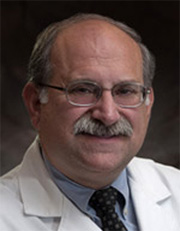 Indexed in Index Medicus and Medline
Indexed in Index Medicus and Medline
EDITORIAL


Clinical Trials: Naming Confusion or YABA?
In reviewing my daily in-box feeds I was surprised to learn that the SELECT Trial (“Selenium and Vitamin E Cancer Prevention Trial”) was updated at the 2014 ASCO meeting in Chicago. SELECT was a major NCI sponsored trial that studied the effect of vitamin E and selenium alone and in combination in the prevention of prostate cancer. I thought the trial had ended several years ago so I was curious about the new information presented. Clicking on the link I found myself learning that the SELECT trial in my e-mail referred to lenvatinib in a trial of advanced thyroid cancer (“Study of (E7080) LEnvatinib in differentiated Cancer of the Thyroid”). I discovered there was yet another SELECT trial, this one short for “Second-Line Effective Combination Therapy”, an HIV study.
Thinking about this further I recalled a confusing conversation about the PROCEDE trial with a colleague earlier this year. While I was referencing the PROCEDE genomic clinical registry being developed by Myriad (“PROlaris Clinical Evaluation DEcision”), he was referring to the Dendreon PROCEED study that stood for “Provenge Registry for Observation, Collection, and Evaluation of Experience Data”. Not to be viewed as narrow minded on this topic of contemporary clinical trials I also should acknowledge a third PROCEED trial: “Study for Women With Platinum Resistant Ovarian Cancer Evaluating EC145 in Combination With Doxil”. ASPIRE, ASSURE, ENABEL, OPTIMIZE…. the list of clever monikers for other clinical trials seems to go on and on.
I am also having flashbacks to Mr. Riley, my high school sophomore English teacher. (He would ask questions such as “Mr. Gomella are these abbreviations, acronyms, or initialisms? Hurry we need the correct answer before midnight!”). Abbreviations do not seem to fit these clinical trials names cleanly. Could these be initialisms? Initialisms, another type of abbreviation, are made from the first letter or letters of a string of words, but they cannot be pronounced as words themselves. Examples include CBC or CPR. Acronym seems to fit some of these clinical trials as these are abbreviations that can be pronounced as words (think transurethral resection of the prostate or TURP). Acronyms can be made from the first letter or letters of a string of words but are pronounced as if they were words themselves.
ClinicalTrials.gov is considered the most authoritative web based resource for clinical trials in the United States. In addition to the full title and the unique ClinicalTrials.gov numeric identifier, the trial acronyms are commonly used. The use of these acronyms for clinical trials has increased and can clearly increase visibility of a trial. In one study 33% of clinical trials were associated with an acronym. In a letter to the New England Journal of Medicine, Stanbrook and colleagues noted that “Enhanced attention to and recall of studies through the use of acronyms may facilitate the appropriate translation of research findings into clinical practice”.1
These clinical trial acronyms can be beneficial when compared to their formal trial designation number or their often cumbersome full title. However, repetitive use of the same or similar clinical trials acronym can lead to confusion particularly when they are in the same specialty such as the two PROCEED/PROCEDE studies that are urologically centric. Maybe keeping these trial acronyms separate when they are in different disease states is easy but when they are in overlapping areas such as urology or oncology it can be quite challenging.
Perhaps the trial sponsors would consider working backwards to create titles based on previously unused acronyms. In the future I hope that clinical trial designations will be more diverse or else medicine will need to borrow a term from the world of computer science, “YABA”, an acronym for “Yet another bloody acronym”.
Leonard G. Gomella, MD Thomas Jefferson University Philadelphia, PA
References
1. Stanbrook MB, Austin PC, Redelmeler DA. Acronym-named randomized trials in medicine-the ART in medicine study. N Engl J Med 2006;
355(1):101-102.

